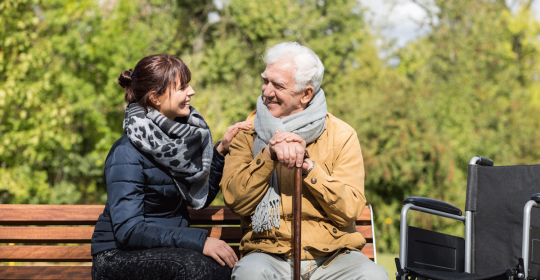
Breakthrough: Dementia Drug Could Prevent Serious Complication In Parkinson’s Disease
A common dementia drug showed to reduce one of the most serious complications in Parkinson’s disease by almost 50%.
Parkinson’s disease
Parkinson’s disease is a progressive neurodegenerative disorder characterized by rigidity, tremor, postural instability, and slowness of movement. It develops… read more
Falls
Parkinson’s is a movement disorder. Thus the gait is impaired. Falls are a common and serious complication in Parkinson’s. 70% of sufferers will fall at least once per year. Over 30% will fall repeatedly. Falls can lead to minor inquires, broken bones and life threatening situations.
The Study
Researchers from the University of Bristol recently published a study in The Lancet, which included 130 Parkinson patients. Over a period of 8 month one group received a common dementia drug called rivastigmine. The other group only a placebo.
The Results
Parkinson patients receiving rivastigmine were 45% less likely to fall compared to the placebo group. Moreover waking and balance was improved.
“We already know that rivastigmine works to treat dementia by preventing the breakdown of the chemical acetylcholine. Our study shows for the first time that it can also improve walking and balance.” Dr Emily Henderson, Parkinson’s UK Research Fellow
The Conclusion
Dr Emily Henderson explains:
“With the degeneration of dopamine producing nerve cells, people with Parkinson’s often have issues with unsteadiness when walking.
“As part of the condition, they also have lower levels of the chemical acetylcholine, which helps us to concentrate. This makes it extremely difficult to balance and walk at the same time.
“This is a real breakthrough in reducing the risk of falls for people with Parkinson’s.”

